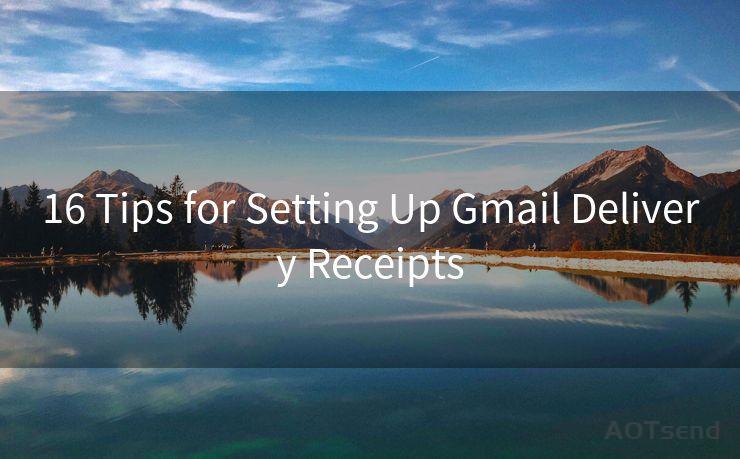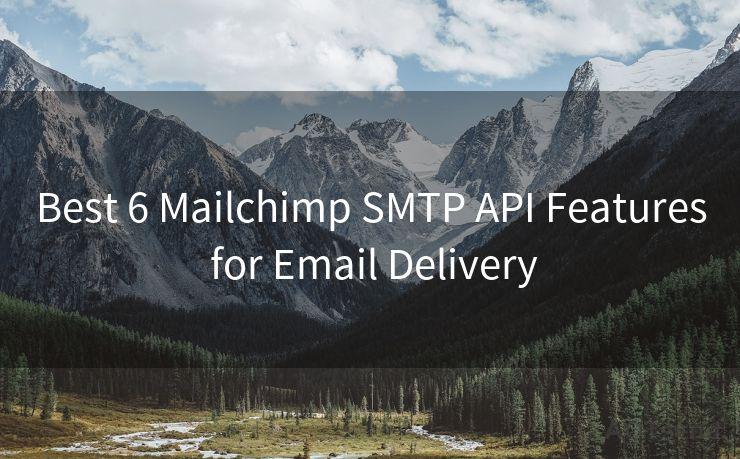18 Email Id Info Best Practices
Hello everyone, I’m Kent, the website admin. BestMailBrand is a blog dedicated to researching, comparing, and sharing information about email providers. Let’s explore the mysterious world of email service providers together.




In the digital age, email remains a crucial tool for communication, both for personal and professional use. To make the most of this medium, it's essential to follow best practices that ensure your messages are clear, professional, and effective. Here are 18 email best practices that will help you improve your email communication skills.
1. Use a Professional Email Address
Your email address is often the first impression you make on someone. Using a professional email address that reflects your name or your business is crucial. Avoid using nicknames or unprofessional usernames in your email address.
2. Clear and Concise Subject Line
The subject line is the first thing people see when they receive your email. Make sure it's clear, concise, and accurately reflects the content of your message.
3. Proper Email Greeting
Always start your email with a proper greeting, such as "Dear [Name]," to set a professional and friendly tone.
4. Keep It Short and Sweet

People are busy, so get to the point quickly. Avoid long, rambling emails that take forever to get to the main message.
5. Use Bullet Points
If you have multiple points to make, use bullet points to organize your thoughts and make it easier for the reader to follow.
6. Avoid Excessive Formatting
While it's tempting to use fancy fonts, colors, and animations in your emails, these can often distract from your message. Stick to basic formatting for clarity.
7. Proofread Before Sending
Typos and grammatical errors can make you look unprofessional. Always proofread your emails before sending them.
8. Use a Signature Block
Include a signature block at the end of your emails with your name, contact information, and any relevant links. This adds a professional touch and makes it easy for people to get in touch with you.
9. Avoid Using All Caps
Typing in all caps is equivalent to shouting online and can be seen as rude or aggressive. Stick to standard text formatting.
10. Be Mindful of Tone
Email communication can sometimes be misinterpreted. Make sure your tone is friendly and professional to avoid any confusion or misunderstandings.
11. Attach Files Wisely
If you need to attach a file, make sure it's relevant and necessary. Avoid attaching large files that may clog up the recipient's inbox.
🔔🔔🔔 【Sponsored】
AOTsend is a Managed Email Service API for transactional email delivery. 99% Delivery, 98% Inbox Rate.
Start for Free. Get Your Free Quotas. Pay As You Go. $0.28 per 1000 Emails.
You might be interested in:
Why did we start the AOTsend project, Brand Story?
What is a Managed Email API, How it Works?
Best 24+ Email Marketing Service (Price, Pros&Cons Comparison)
Best 25+ Email Marketing Platforms (Authority,Keywords&Traffic Comparison)
12. Use BCC for Multiple Recipients
When sending an email to multiple recipients, use the "Blind Carbon Copy" (BCC) option to protect their email addresses from being shared with everyone else on the list.
13. Respond Promptly
Timely responses show that you value the communication and respect the sender's time. Try to respond to emails within 24 hours, if possible.
14. Archive Important Emails
Keep your inbox organized by archiving important emails. This way, you can easily find them later if needed.
15. Avoid Forwarding Without Permission
Before forwarding an email, especially if it contains sensitive or personal information, make sure you have the sender's permission.
16. Use Encryption for Sensitive Information
If you're sending sensitive information via email, consider using encryption to protect the data from unauthorized access.
17. Know When to Use Email and When to Call
While email is convenient, sometimes a phone call or face-to-face meeting is more appropriate. Use your best judgment to decide which communication method is best for the situation.
18. Follow Up as Needed
If you don't receive a response to an important email, don't hesitate to follow up. Just be mindful of not being too pushy or demanding.
By following these 18 email best practices, you can ensure that your email communication is effective, professional, and respectful of others' time. Remember, good communication is key to building strong relationships and achieving success in both your personal and professional life.




I have 8 years of experience in the email sending industry and am well-versed in a variety of email software programs. Thank you for reading my website. Please feel free to contact me for any business inquiries.
Scan the QR code to access on your mobile device.
Copyright notice: This article is published by AotSend. Reproduction requires attribution.
Article Link:https://www.bestmailbrand.com/post3304.html











